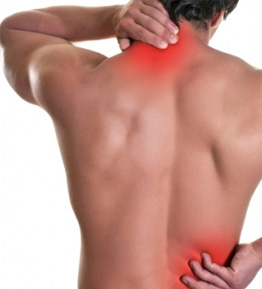Your neck (cervical spine) is made up of vertebrae that extend from the skull to the upper torso. Cervical disks absorb shock between the bones. The bones, ligaments, and muscles of your neck support your head and allow for motion. Any abnormalities, inflammation, or injury can cause neck pain or stiffness.
Many people experience neck pain or stiffness in the neck occasionally. In many cases, it is due to poor posture, normal wear and tear, or overuse. Sometimes, neck pain is caused by injury from a fall, contact sports, or whiplash.
Most of the time, neck pain is not a serious condition and can be relieved within a few days. In some cases, neck pain can indicate serious injury or illness and require a doctor’s care. If neck pain continues more than a week, is severe, or is accompanied by other symptoms, seek medical attention immediately.
 Causes of Neck Pain or Stiff Neck Causes of Neck Pain or Stiff Neck
Neck pain or stiffness can happen for a variety of reasons.
Muscle Tension and Strain
This is usually due to activities and behaviors such as:
- poor posture
- working at a desk for too long without changing position
- sleeping with your neck in a bad position
- jerking the neck during exercise
Injury
The neck is particularly vulnerable to injury, especially in falls, car accidents, and sports, where the muscles and ligaments of the neck are forced to move outside their normal range. If the neck is dislocated or fractured, the spinal cord may also be damaged. Neck injury caused by a sudden jerking of the head is commonly called “whiplash.”
Diseases and Conditions
1) Arthritis causes pain, swelling of the joints, and bone spurs. When these occur in the neck area, neck pain can result.
2) Osteoporosis weakens bones and can result in small fractures.
3) Fibromyalgia is a condition that causes muscle pain throughout the body.
4) As you age, the cervical disks can degenerate (spondylosis), narrowing the space between the vertebrae and adding stress to the joints. When a disk protrudes, it may add pressure to the spinal cord or nerve roots. This is called a herniated cervical disk, also known as a ruptured disk or slipped disk.
5) Spinal stenosis occurs when the spinal column narrows and causes pressure on the spinal cord. This can be due to long-term inflammation caused by arthritis or other reasons.
|